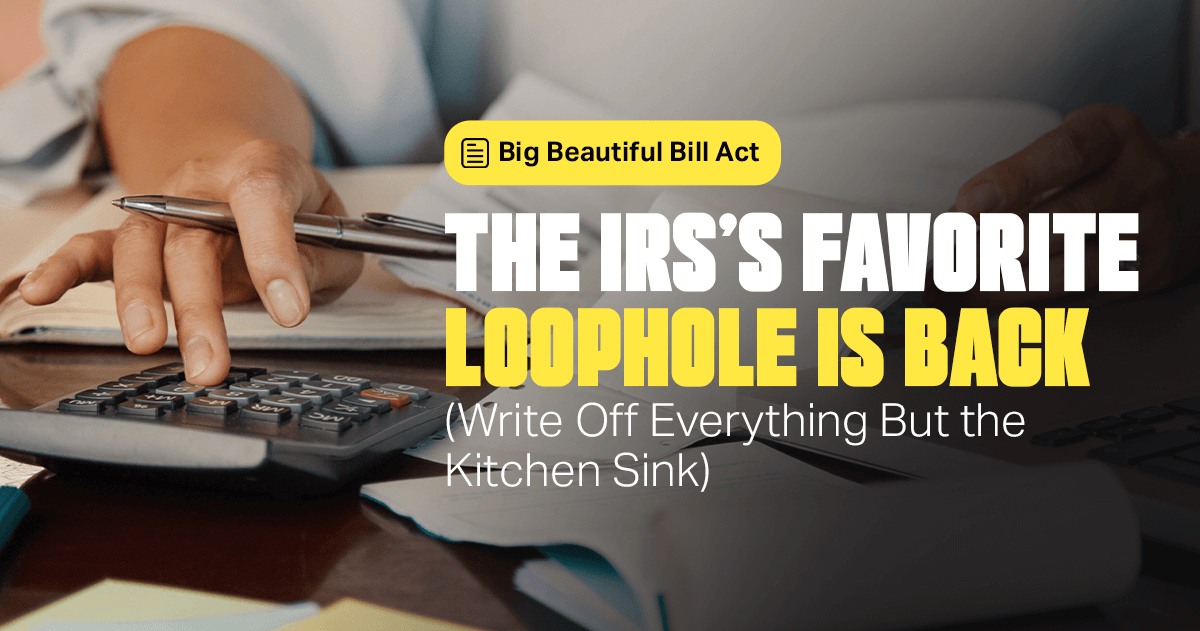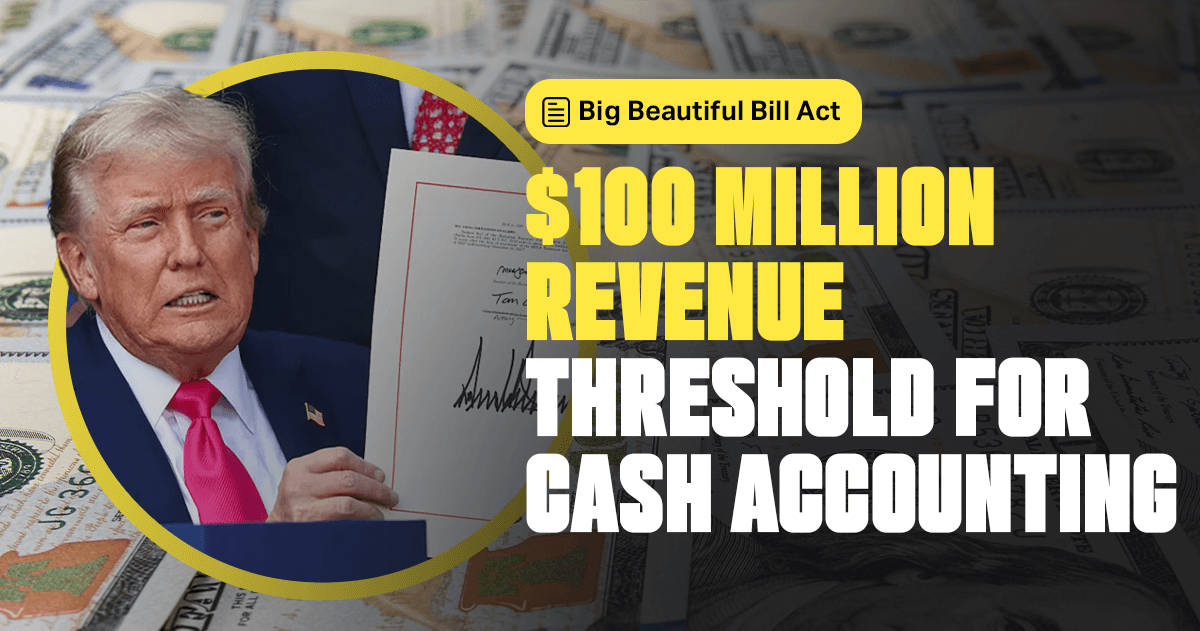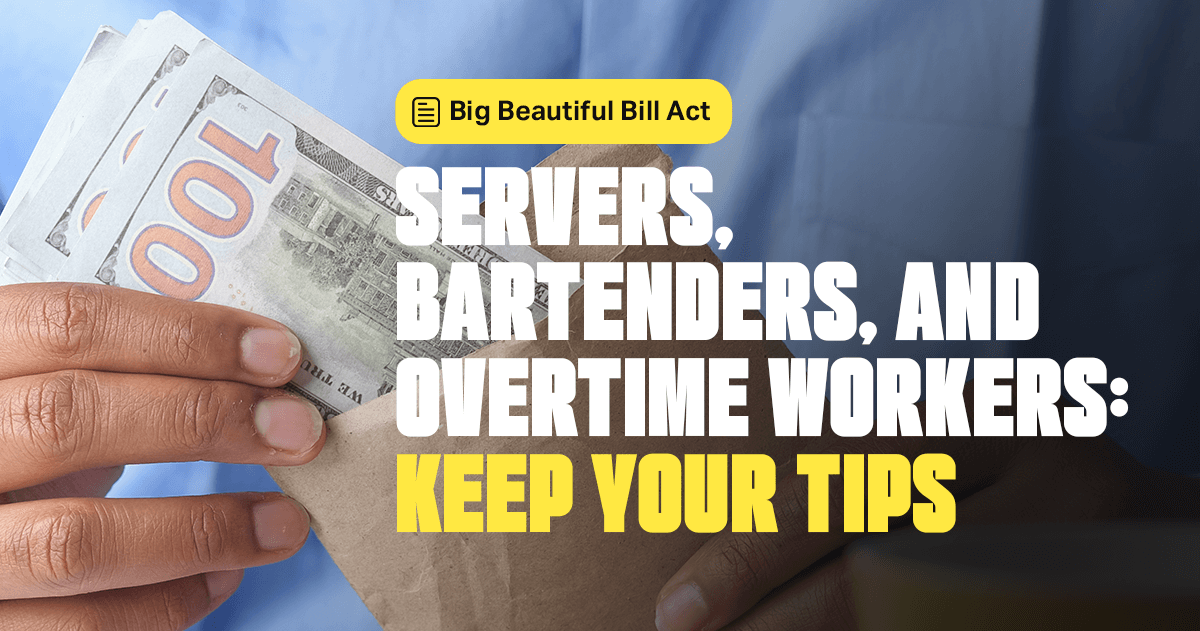Here’s something that’ll make your head spin: The same government that audits you for claiming too many business meals just handed you permission to write off a million-dollar piece of equipment in year one.
I remember when I first learned about bonus depreciation. I was sitting across from my accountant—this was back when I still kept receipts in a shoebox like some kind of financial caveman—and he starts explaining how I could deduct the entire cost of equipment immediately instead of spreading it out over five to seven years.
I said, “That sounds illegal.”
He said, “It’s not just legal, the IRS encourages it.”
“The same IRS that sent me a letter about a $47 office supply deduction?”
“Yep.”
“That makes zero sense.”
“Welcome to the tax code.”
I didn’t grow up on the right side of money, so when the government offers me a legal way to cut my tax bill by hundreds of thousands of dollars, I’m not going to argue with the logic. I’m just going to take advantage of it.
And here’s the beautiful part—Trump’s Big Beautiful Bill just brought back 100% bonus depreciation like a motherfucker, retroactive to January 20, 2025. They took the single most powerful wealth-building tool in the tax code and said, “Here, go nuts.”
But let’s be honest—most business owners are going to screw this up because they don’t understand what qualifies and what doesn’t. So let me break this down like you’re my neighbor, not some MBA who speaks in acronyms.
First, what qualifies for 100% bonus depreciation? Pretty much any tangible property your business uses that has a recovery period of 20 years or less. That means:
Equipment and machinery (yes, all of it). Vehicles (trucks, cars, even that fancy Tesla). Computer systems and software. Furniture and fixtures. Tools. Even some improvements to buildings you lease.
What doesn’t qualify? The actual building structure itself. Land (obviously). And here’s the kicker—anything you buy used from someone you’re related to or have a relationship with. The IRS isn’t stupid.
Second, timing matters. The property has to be acquired after January 19, 2025, and before January 1, 2030. And it has to be placed in service—meaning actually used in your business—during that same period.
Third, and this is where people get confused: You have to elect to take bonus depreciation. It’s not automatic. You can choose to take it or spread the deduction out over time. Most of the time, taking it immediately makes sense, but not always.
How many of you have been putting off buying equipment because you thought you couldn’t afford it? How many of you are driving around in a 15-year-old truck because the monthly payment seemed too high?
You see what I mean? This isn’t just about saving money on taxes—this is about completely changing how you think about business investments.
Think of it like this: Let’s say you make $300,000 this year and you’re about to write a check to the IRS for $105,000. But instead, you buy $150,000 worth of equipment your business actually needs. With bonus depreciation, you can deduct that entire $150,000 this year. Your taxable income drops to $150,000, and your tax bill just went from $105,000 to about $52,500.
The math ain’t mathin’ if you’re still thinking like someone who pays full price for everything.
But here’s what separates the smart money from everyone else—they understand this isn’t about buying shit you don’t need just to get a tax deduction. That’s how people go broke with a smile on their face. This is about accelerating purchases you were going to make anyway and using the tax savings to fund growth.
My buddy owns a construction company. He was planning to buy three new trucks over the next few years. Instead, he bought all three this year and wrote off the entire $180,000. The tax savings alone paid for one of the trucks.
You create income, you invest in assets, you deduct what the law encourages, and you multiply what matters most—your capacity to serve customers, employ people, and build something that lasts.
This isn’t just about money, though. This is about giving small businesses the same advantages that big corporations have been using for decades. It’s about leveling the playing field so the guy with the great idea and the willingness to work his ass off can compete with the guy who inherited his daddy’s company.
I’m not doing this for applause, but I’ve seen too many good people stay small because they didn’t understand the rules. They think success means working harder when it actually means working smarter.
Money is a game, and bonus depreciation just gave you back one of the most powerful pieces on the board.
So here’s my challenge: Stop thinking like someone who’s grateful for whatever’s left after the government takes their cut. Start thinking like someone who understands that when the tax code rewards investing in your business, it’s because they want more businesses investing in growth.
The shoebox mentality says “save every receipt and pray.” The bonus depreciation mentality says “invest in assets that pay you back AND reduce your taxes.”
Which business owner are you going to be?




















